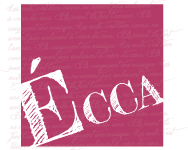Rewriting, a Literary Concept for the Study of Cultural Memory: Towards a Transhistorical Approach to Cultural Remembrance
| Author | |
| Mots-clés |
Literacy
Cultural memory
Orality
Rewriting
Visual literacy
|
| Résumé |
This article explores rewriting as a concept for cultural memory studies, examining the transformation of the technology of “writing again” in different historical periods. Its aim is to elucidate in what ways rewriting functions as an act of remembrance, and how this function differs in the manuscript age, the age of print and the digital age. The article discusses differences and similarities in the stability or fluidity of texts as a medium for memory, presenting rewriting as a helpful tool to see through presumed distinctions between these periods and their characteristic methods of text transmission. In particular, the article presents findings with respect to its utility to a broad range of historical source evidence, from the early medieval literature on saints’ lives to contemporary post-colonial and feminist literature. In this article, rewriting is recognized as a transformative technology of memory, carrying and transmitting memories but not without change and adaptation. Dealing explicitly with the variety and the diversity of the media that transmit cultural memory in the different historical periods, including visual media, the article shows rewriting to be a productive concept for understanding cultural memory as an act of transfer.
|
| Année de parution |
2013
|
| Journal |
Neophilologus
|
| Volume |
97
|
| Issue |
4
|
| Number of Pages |
611-625,
|
| ISBN Number |
0028-2677
|
